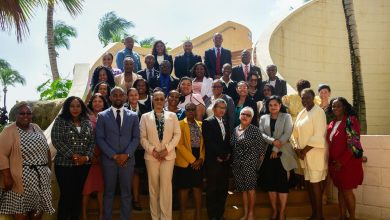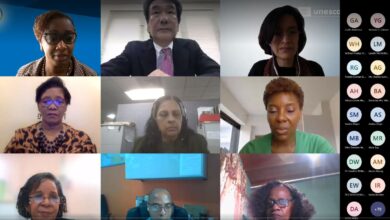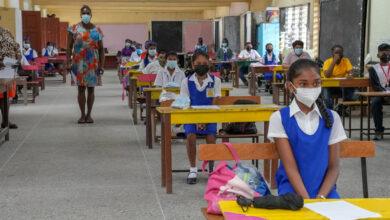I am delighted to welcome all of you who have honoured the invitation to this 6th Special Meeting of the Council for Human and Social Development. Your presence here, is fitting testimony to your commitment to the urgent need for us to work harmoniously together in facing the challenges of Human and Social Development, as they relate to education at all levels of the system.
This Meeting provides a forum for dialogue with the objective of evolving enduring solutions to the human development constraints facing the Caribbean Region.
The COHSOD is an established link among all our respective countries. We can now learn from each other as we search for solutions to existing problems and to those problems that may arise in the future. This is important because our success ultimately will depend upon our ability to prepare young people of the Caribbean to assure future roles in all of our activities.
When I say Welcome to the 6th Special Meeting of the COHSOD, I am also saying Welcome to Trinidad and Tobago, the land of the steel pan and calypso, the land of paradise, where we can hold the greatest festival on earth and have no serious incidents, a country where we strive to achieve unity among ourselves, while at the same time encouraging and respecting our diversity. Welcome to T and T, Welcome to a place of peace, of hope, of a common struggle towards sustainable Human and Social Development.
Al Gore, a former U.S. Vice President nicely sums up the essence of our purpose here with the following statement –
“Economic growth cannot be sustained unless its fruits are continually invested in nourishing human potential”.
That is exactly why we are here – to see how far we have come in nourishing human potential in the CARICOM Region and, to see how we can carry it until the very youth we are planning for take over the baton from us.
Major goals have been set by the COHSOD and many decisions taken. Over the next two days we will update the status of the achievement of those goals, we will collaborate in searching for solutions to some of the problems we each face in the realization of these goals, and will hopefully reinforce our commitment to the human and social development of our people through education.
The Caribbean Region, must now cope simultaneously with global economic competition, the demand for new competencies in the population, the maintenance of the social fabric for nurturing, socializing, and educating our present generation and the next. The foundations for the future populations' health, family life and competence, and henceforth-economic prosperity, depend on how readily we can cope with those demands.
However, simplistic and ineffective solutions, which focus on the past instead of the present and the future, should be avoided. Dwelling too much in the past could become an obstacle to finding solutions that would result in sustainable human and social development.
Some of the problems we face, I am sure, are common across the entire Caribbean Region and some common across the globe. For example among our most perplexing problems in education today are:
the education of our children with special needs;
the gender factor, e.g., the perceived underachievement of males in the system;
the high levels of functional adult illiteracy; and
parental attitudes which impede the education agenda.
These are prime examples of the need to accept and understand diversity in human and social development. Thus we must strive to put our collective minds together so that we can devise non-homogeneous intervention strategies that would enable learners to experience success and develop competencies for living in this complex technological world.
We are therefore anxious to hear more about the conceptual framework, which is expected to demonstrate the inherent advantages of a regional strategy for Human Resource Development.
The sovereignty of our Caribbean States, and the sovereignty of the Caribbean Region are fundamentally linked to the development of all our people.
In closing, let me once again welcome all our visitors to Trinidad and Tobago. I wish the meeting fruitful deliberations and hope that we leave here reenergized and reconditioned to pursue this ideal of sustainable development of our people.
Thank You.






